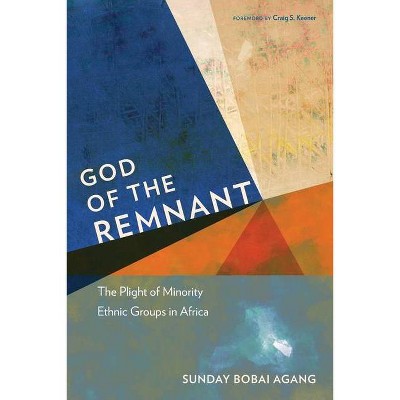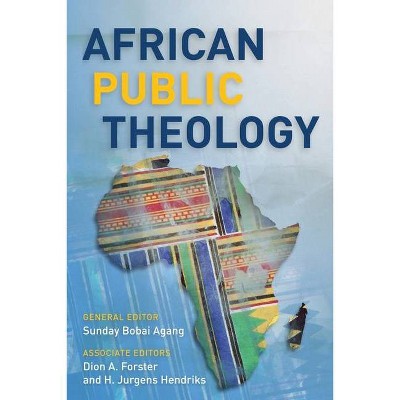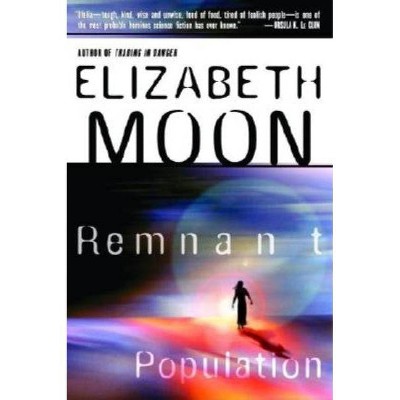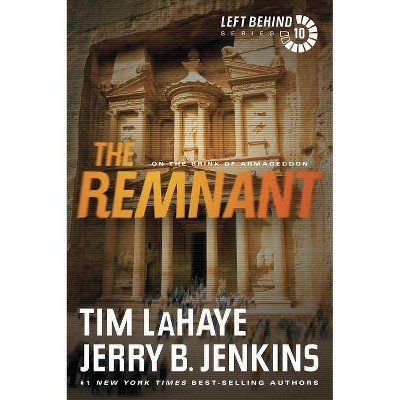God of the Remnant - by Sunday Bobai Agang (Paperback)

Similar Products
Products of same category from the store
AllProduct info
<p/><br></br><p><b> About the Book </b></p></br></br><p>Agang addresses the church's calling to stand against the injustices facing minorities in Africa. Drawing on covenantal theology and the biblical motif of a remnant, he explores God's heart for those often devalued, silenced, and excluded.</p><p/><br></br><p><b> Book Synopsis </b></p></br></br><p>Violence against ethnic minorities is a recurring theme in human history. The God of the Bible, however, is a God of the marginalized, the powerless, and the overlooked. To be a minority is to inhabit the heart of God's story not its fringes.</p><p>In this book, Dr. Sunday Bobai Agang addresses the discrimination, oppression, and violence facing minorities in Africa and the church's calling to stand against such injustice. Drawing upon covenantal theology and the biblical motif of a remnant, Agang explores God's heart for those commonly devalued, silenced, excluded, and ignored. While our human societies are obsessed with power and might, God's economy is one where the first are last and the weak confound the strong. This book is a powerful reminder of the source of true identity and the foundation for lasting peace and human flourishing.</p><p/><br></br><p><b> Review Quotes </b></p></br></br><br><p>Africa is blessed with a rich diversity of cultures, ethnicities and nationalities. However, such diversity can also lead to differences in moral, political and religious outlook. The situation becomes more complex when there are unequal power relations, competition for limited material resources, and a history of conflict. Agang addresses concerns such as these with clarity and wisdom as he draws upon the biblical motif of the "remnant." The key to peace and human flourishing, he proposes, is a clearer understanding of the implications of living in a covenantal relationship with God and all of God's creation.</p><p><strong>Dion A. Forster, PhD</strong></p><p>Director, Beyers Naudé Centre for Public Theology</p><p>Chair, Department of Systematic Theology and Ecclesiology, </p><p>University of Stellenbosch, South Africa</p><p>Agang is familiar with the fate of minorities in Africa. He knows suffering, but he found a door that unlocks a road less travelled. He explains what "remnant" means in Scripture and how God uses small minorities through difficult times to keep faith and hope alive. In doing so, Agang gives the reader a set of glasses - one can see the patterns of history! The majesty of the covenantal God unfolds. Being in the presence of God changes the way you see yourself: identity gets redefined, self-confidence is regained, shame is removed, despair vanishes and hope is rekindled. The acceptance of being a remnant is not an instant individualized cure from miseries leading to a hassle-free life! In this book, you are invited to take the first steps on an Abrahamic journey and before your very eyes the footprints of the one who set aside the privileges of deity appear.</p><p><strong>H. Jurgens Hendriks, DLitt</strong></p><p>Emeritus Professor, Practical Theology and Missiology, </p><p>Stellenbosch University, South Africa</p><p>The task of the theologian is two-fold; namely, to understand the message of the Bible and to apply that message to the contemporary situation. In this book, Professor Agang has not only brought out the meaning of the biblical concept of remnant but applied it to the plight of many ethnic minorities. There are thousands of ethnic minority groups all over Africa who suffer all kinds of indignities such as isolation, oppression, intimidation, deprivation, poverty, violence and despair. Juxtapose the plight of ethnic minorities with the majority ethnic groups who live in affluence, protection, and prosperity and oppress minority groups. These extreme realities and tensions are with us and the Christian must make sense of it all. This is an apt study that will find meaning and relevance for the many struggles, questions, tensions and severe afflictions of many African ethnic minorities.</p><p><strong>Samuel Waje Kunhiyop, PhD</strong></p><p>Professor of Systematic Theology and Ethics, </p><p>ECWA Theological Seminary, Kagoro, Nigeria</p><p>This book speaks powerfully to the situation of the minority ethnic groups in Africa. <em>Marginalization</em> is the key word that describes their fate. Citing the example of Nigeria, the colonial masters empowered three regions: namely, North, East, and West. In these regions, the key players are the Hausa, Fulani, Igbo, and Yoruba. The rest of the over five hundred minority nationalities became subsumed non-entities and mere numbers to be manipulated for political gains by the majority tribes. These minority ethnic groups are despised, marginalized, persecuted, and downtrodden. But Agang does not stop in this state of hopelessness and despair. From the biblical concept of the remnant, he sees a "beacon of hope" for the minorities - they can serve as a source of blessing to the rest of humankind. What a huge encouragement for the marginalized and discouraged remnant!</p><p><strong>Rev. Bitrus A. Sarma, PhD</strong></p><p>Professor of Biblical Studies (NT), </p><p>Provost, ECWA Theological Seminary, Kagoro, Nigeria</p><br>
Price History
Price Archive shows prices from various stores, lets you see history and find the cheapest. There is no actual sale on the website. For all support, inquiry and suggestion messagescommunication@pricearchive.us




















